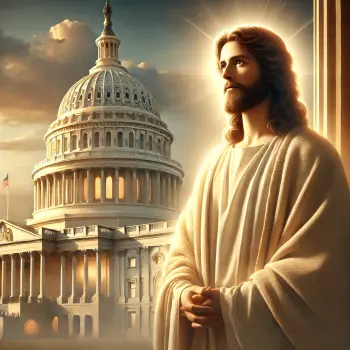The French thinker Paul Ricoeur is the person perhaps best known for thinking about narrative broadly and understanding human beings in those terms. In Oneself as Another he argues, for example, that the self (which we usually implicitly understand as some thing, some kernel, that constitutes us) is narratively constructed. But Ricoeur is not alone in arguing that we define ourselves narratively. Whether an explicit theme, as in Ricoeur and Charles Taylor, or an implicit one, as in many European thinkers and a number of Anglo-American ones, the narrative character of identity is an important thread of the last fifty and more years of philosophy.
But we have understood our identity through narrative for a long time, even if we didn't explicitly understand that we were doing so. Beginning in about 1500, even Modernism, the way of thinking that radically shifted our understanding of the world and our place in it, defined itself narratively. In the Renaissance the modern was a recapitulation of the ancient with the medieval (literally "the middle period") between the two. Later Modernism often understood itself simply in terms of the story of progress: from primitive ideas, to religious superstition, to rational understanding. Today we often invoke some mixture of those two stories. In any case, to be modern is to know oneself through a relationship to the past and an expectation of the future. It is to be able to tell the story of that relationship, and Modernism's narrative is triumphalist: it assumes that finally humanity has achieved the means of accessing abstract, universal principles without recourse or reference to transcendence.
As part of larger culture Mormons, too, understand themselves narratively. Of course. But Mormons do so in spades. At least since the early 20th century, The Church of Jesus Christ of Latter-day Saints has defined itself historically more than doctrinally. The story begins with Joseph Smith's first vision and continues through the persecutions and movements of the early Church from Ohio to Missouri to Illinois and, finally, to Utah. Then Mormonism and Mormons build a variety of other narratives, including individual ones, on that Ur-narrative.
The question is what story to tell when the narratives that define us clash. Given the character of the modern narrative and that of the Mormon narrative, there cannot but be some clashes.
One of those clashes comes in the story that modernism tells about persons. According to the modern story, persons are ultimately individuals, in other words entities that exist in and of themselves and which cannot be broken down into smaller parts. Often modernism understands us as atomistic individuals: the person is the basic unit of all relations, that from which relationships are built.
According to the modern story our associations and relations are created by our free choices, and nothing ought to be allowed to interfere with that self-creation. Hobbesian, Lockean, and Rousseauian political theories are excellent examples of variations on the modern story.
There are legitimate alternatives to Modernism's understanding of what it means to be a person. Emmanual Levinas, for example, offers one in which to be a person is to be open to others. For him openness, even vulnerability, rather than power defines us. In spite of those alternatives, however, most of contemporary Western culture and the cultures it has colonized still understand the person in Modernism's individualistic, acosmic terms. Mormons, too, often accept that modern story. Much of the political conservatism of North American Mormons is a sign of that acceptance (though I wouldn't reduce the phenomenon merely to that since political liberalism is another version of the same understanding).
But the modern, individualistic narrative is in tension with the Mormon story, for in the LDS story we are who we are only in relation with other people. Latter-day Saints believe in being sealed to one another, forming a new entity, a new being, the family, by doing so. And that sealing is not merely a matter of a couple and their children. In principle it extends backward to the beginning of humanity and forward to its end. Indeed, to be saved is to be made a child of God for eternity, with a spouse, brothers, sisters, aunts, uncles . . . . Speaking of the dead, Joseph Smith said, "their salvation is necessary and essential to our salvation, as Paul says concerning the fathers—that they without us cannot be made perfect [Heb. 11:40]—neither can we without our dead be made perfect" (D&C 12:15).





